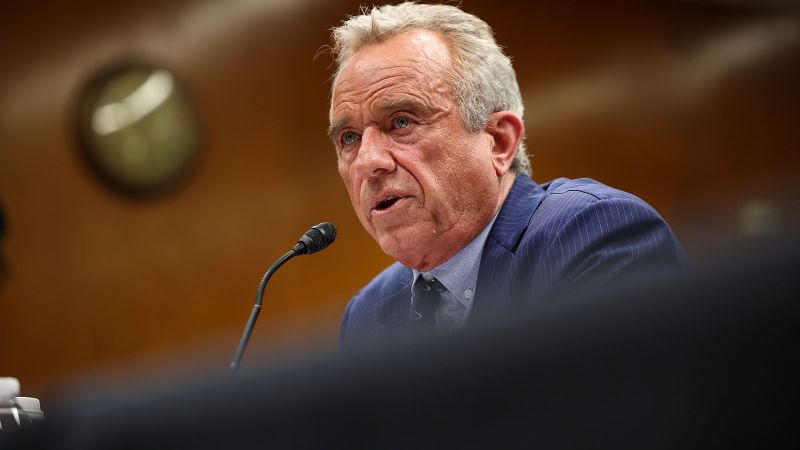In a recent op-ed published in the Wall Street Journal, Robert F. Kennedy Jr., the Secretary of Health and Human Services in the United States, expressed a significant shift in the management of the Advisory Committee for Immunization Practices (ACIP). Kennedy declared that he would disband the entire 17-member panel that has historically guided federal vaccine recommendations, asserting that the committee is rife with conflicts of interest. ACIP, which provides critical advice to the Centers for Disease Control and Prevention (CDC) regarding vaccination schedules and required immunization coverage, is undergoing unprecedented changes as a result of his decision.
Kennedy’s op-ed detailed his rationale behind this drastic move. He claimed that many of the current members of ACIP, traditionally comprised of pediatricians, epidemiologists, immunologists, and various other medical professionals, were appointed at the last minute by the Biden administration. He mentioned that retaining these existing members would have hindered the Trump administration’s ability to influence the panel’s composition until the year 2028. This announcement effectively signals a concerted effort to reshape vaccine advisory boards in a way that aligns more closely with Kennedy’s vision of vaccine policy and public health.
Notably, while ACIP members are generally regarded as non-political appointees, Kennedy argues that the integrity of the committee has been undermined due to a lack of transparency regarding its vaccine recommendations. He highlighted recent discussions among ACIP members that could potentially restrict guidance on COVID-19 vaccinations for children, which added to his concerns about the committee’s efficacy and intent.
Kennedy’s moves come amid an ongoing dialogue with influential lawmakers. Notably, he had previously committed to consulting with Senator Bill Cassidy, a Republican from Louisiana and the chairman of the Health, Education, Labor and Pensions Committee, about appointments to vaccine advisory boards. This aspect of Kennedy’s strategy raises important questions about the intersection of politics and public health, particularly as it pertains to vaccine safety and policy-making.
The planned disbandment of ACIP raises significant implications for the future of immunization policy in the U.S. A spokesperson for Senator Cassidy did not immediately provide comments on the situation, leaving a degree of uncertainty about how this development will be received in the broader political landscape. The implications extend beyond membership changes; they hint at an ideological shift concerning how public health decisions in vaccinations are formulated and communicated to the public.
In an upcoming committee meeting scheduled for June 25, discussions will focus on various vaccination topics, including COVID-19, respiratory syncytial virus (RSV), influenza, human papillomavirus (HPV), and meningococcal disease. The Department of Health and Human Services (HHS) indicated that this meeting is still on track, providing roughly two weeks for Kennedy to appoint a new advisory panel. However, concerns have been raised by public health experts regarding the rapid speed at which new appointees may be chosen. Dorit Reiss, a law professor at UC Law San Francisco, articulated her concerns that such hastily appointed members may not have undergone thorough vetting processes to identify conflicts of interest.
This episode illustrates the delicate interplay between health policy and public sentiment. While Kennedy’s intentions may stem from a push for transparency and reform, the efficacy of such extreme measures in restoring public trust in vaccines is still in question. The public health community will be closely monitoring these developments as the new advisory panel is formed and begins to operate in a highly scrutinized environment. The ongoing dialogue regarding vaccinations will inevitably shape health policy and impact public perceptions, underscoring the importance of transparency and trust in public health communications.



